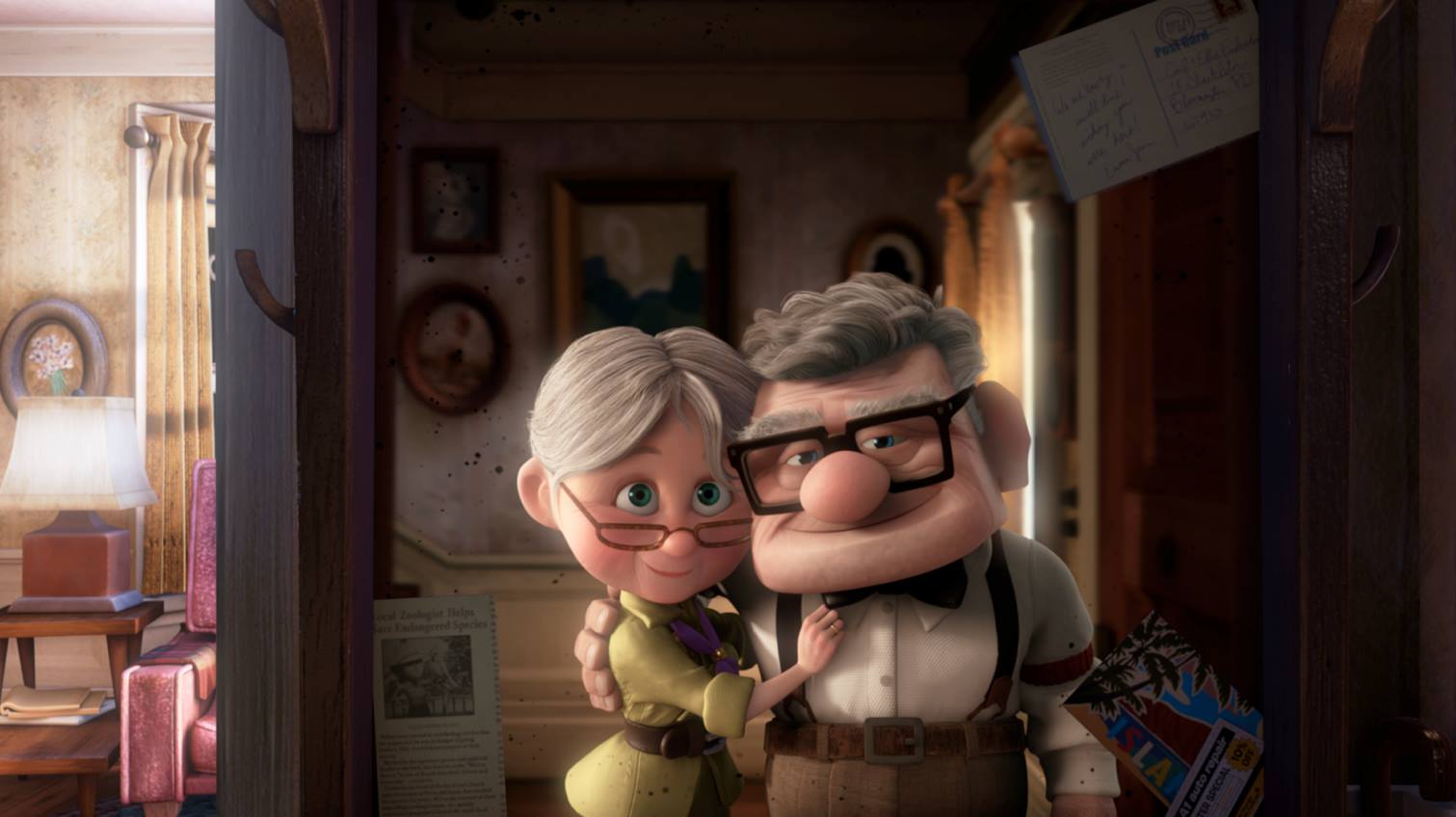
Gaming Editor Louis Wright makes the case for a Buddhist reading of Pixar’s classic 2009 film.
Pixar’s UP (2010) is one of their most iconic films, if only for its opening scene. Scored to a fantastic piano arrangement and showcasing the ‘married life’ of two lifelong sweethearts, the scene is heart-warming, gut-wrenching, and tear-jerking all in one. Upon recent re-watch however, this opening scene was surprisingly not the most engaging and memorable part of the film, rather all of the events that come after.
Carl’s journey within UP, on a surface level, is one that showcases a crotchety old man learning to open his heart again and love the life he still has left to live. While an apt reading of the film’s events, I propose that there is a deeper meaning to Carl’s journey within UP. That being Carl’s journey within the film is one of learning to attain a spiritual enlightenment in line with the teachings of the Buddha.
When comparing UP to traditional Buddhist teachings it is important to first understand the story of the Buddha. In quick summation Siddhartha Gautama was a prince living in great privilege. Upon leaving the walls of the castle he was raised in he saw the great suffering that is an occurrence in human life. On his journey for understanding he met an old man, an ill man, a corpse, and an ascetic; all of whom gave him great insight into the nature of suffering and how to overcome it. Gautama renounced all of his personal possessions, attachments to the world, and in a state of deep meditation reaching enlightenment gained a complete understanding of the nature of life and suffering.
“…there is a deeper meaning to Carl’s journey within UP
Carl’s journey not to Paradise Falls, but rather to moving on from Ellie’s death, is a reflection of Gautama’s journey to enlightenment. Primarily, Carl begins the film with a deep-seated understanding of what it means to be suffering; the death of Ellie informs Carl of the pain that life can bring through taking away his one true love, hence his depression at the beginning of the main narrative. The death of Ellie is Carl leaving the palace walls. He has enjoyed a lifetime of happiness and privilege with her, but upon her loss he sees the true nature of the world.

From there Carl makes his journey to understand the nature of his place in the world now, the journey to Paradise Falls. On this journey while Carl does meet four key individuals, Russel, Kevin, Dug, and Charles Muntz, these are not directly analogous to the four that Gautama meets. Rather it is Charles Muntz’s individually that represents these four teachers of Buddha, as is Charles’ place as Carl’s childhood mentor. Muntz is, obviously, old, his illness being his relentless obsession with capturing the bird, becomes a corpse, literally, by the conclusion of the film, and is ultimately ascetic in the sense that he refuses the possible luxuries of modern life he could still be afforded upon returning without the bird.
Being effectively a dark mirror of Carl, Muntz is a reflection of what Carl could become if he does not overcome his suffering in life. Someone that is bitter, twisted at the world, and malicious as a form of retribution for the pain they suffered. This is shown in Carl’s early interactions with other characters, wanting nothing to do with Russel, and actively assaulting the construction worker towards the beginning of the film.
Upon seeing what Muntz has become Carl learns the meaning of suffering, and how his clinging to Ellie has warped his view of the world. This is the path to enlightenment that Carl undertakes and three of the four noble truths that he must learn to reach this point. The final noble truth, the “path to the cessation of suffering” is therefore the climax of Carl’s character arc. His abandonment of all mortal possessions and connections he previously had in his final confrontation with Muntz is symbolic of this.
“UP is a story of ending one’s suffering through freeing themselves of desire
The removal of all personal items from his house removes the literal weight of the world that was grounding him to the shackles of his past, allowing him to lift off and rescue those he has found. Letting go of his house, and therefore any connection he had left to Ellie is also the ending of Muntz, and both the representation of suffering for Carl personally, and in the world respectively. Finally he leaves behind his cane, a gift to Kevin and her children, which is the final step to achieving his spiritual healing, shown through him being physically fitter.
Buddhism teaches that suffering comes from a false view of the world, stemming from clinging to the world as if it were a permanent presence and the desire that this breeds. UP is a story of ending one’s suffering through freeing themselves of desire. It is apt to say, therefore, that UP is very much a story, whether intentionally or not, a story that teaches the moral principles and ideas of Buddhism in a way that is approachable and understandable for a younger audience.
Enjoyed this? Read more Film features below:
Feature: The Philosophy of Filmmaking

Comments